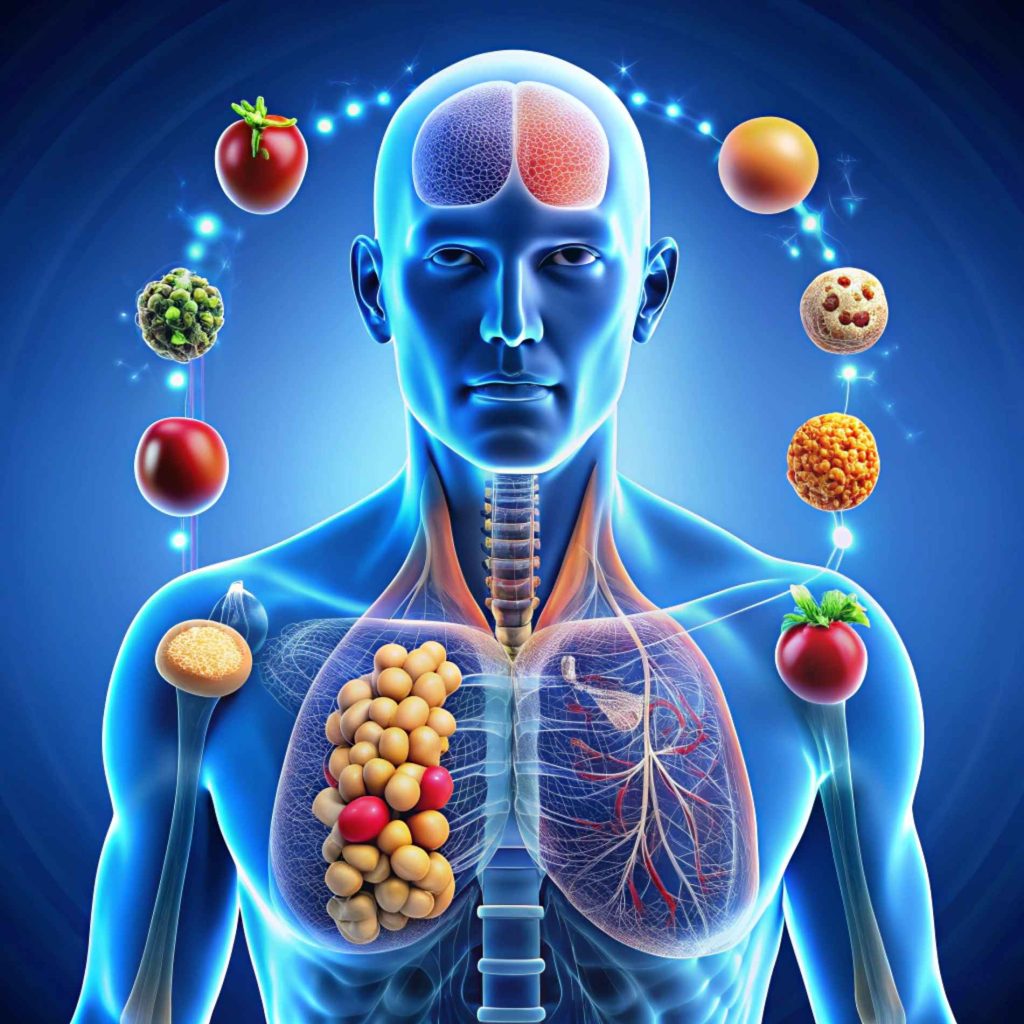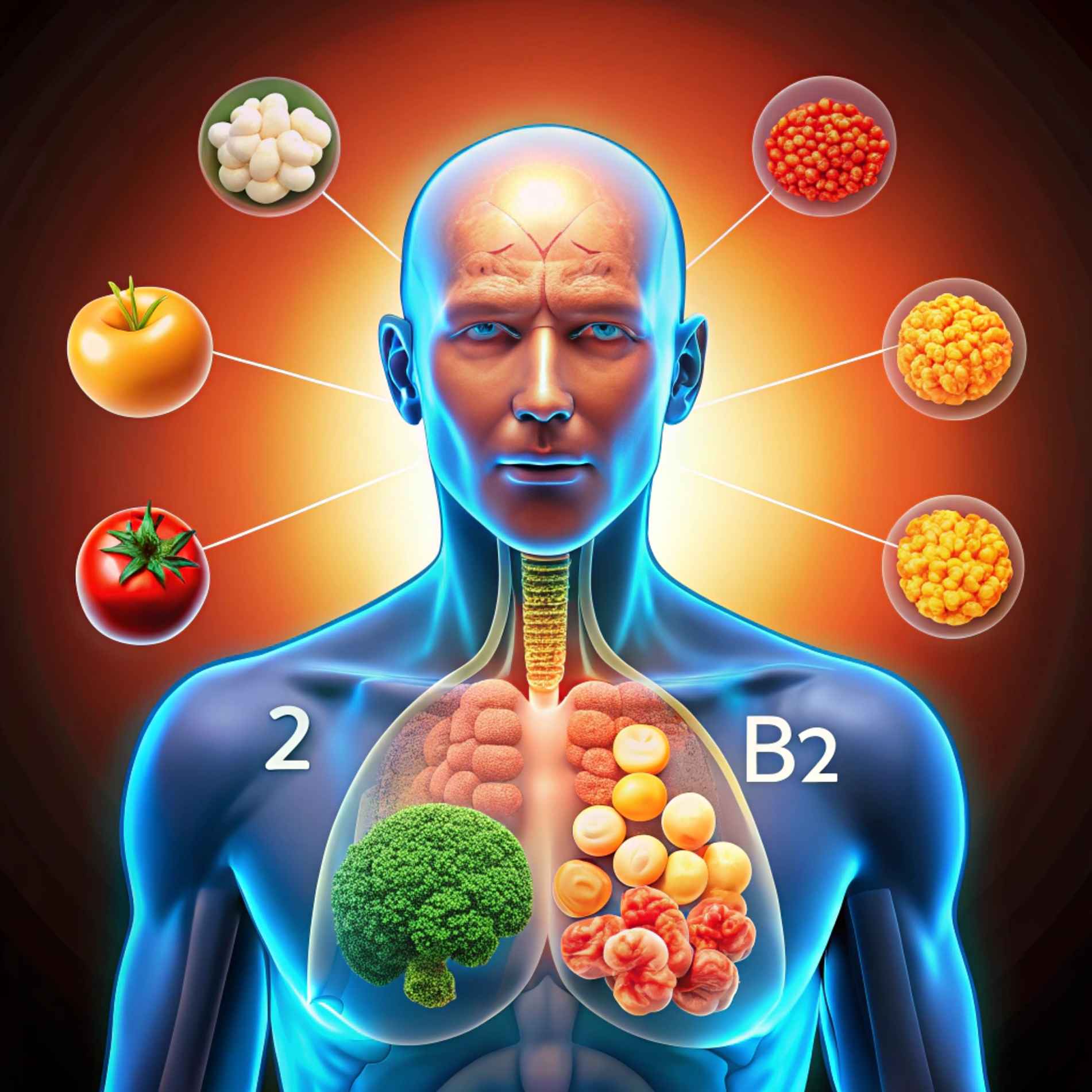Introduction
Addressing nutrient deficiencies is crucial in the journey towards a healthier and more sustainable lifestyle. One such essential nutrient is vitamin B12, vital in maintaining nerve function, red blood cell formation, and DNA synthesis. However, vitamin B12 deficiency is common, especially among those following plant-based diets. This article explores sustainable solutions to vitamin B12 deficiency, emphasizing eco-friendly and health-conscious practices that align with a green lifestyle.
Understanding Vitamin B12 Deficiency
Vitamin B12, or cobalamin, is a water-soluble vitamin naturally found in animal products such as meat, fish, eggs, and dairy. It is crucial for energy production, neurological health, and the formation of red blood cells. Deficiency in this vitamin can lead to serious health issues, including anemia, fatigue, nerve damage, and cognitive disturbances.
Vegans, vegetarians, the elderly, and those with certain medical conditions affecting nutrient absorption are at higher risk of vitamin B12 deficiency. Finding eco-friendly ways to maintain adequate B12 levels is essential for those pursuing a sustainable lifestyle, particularly a plant-based diet.
Sustainable Dietary Sources of Vitamin B12
Fortified Plant-Based Foods
One of the most sustainable solutions to prevent vitamin B12 deficiency is through fortified foods. Many plant-based products, such as nutritional yeast, plant milks, breakfast cereals, and meat substitutes, are fortified with synthetic B12. These foods are often produced with environmental sustainability in mind, using fewer resources than animal farming.
Nutritional yeast is particularly popular among vegans. It’s a deactivated yeast packed with B12, offering a cheesy flavor to various dishes. Incorporating these fortified foods into a plant-based diet ensures adequate B12 intake without compromising sustainability.
Algae and Seaweed
Algae and seaweed, such as chlorella and nori, are emerging as promising natural sources of vitamin B12. These highly sustainable marine plants require minimal resources to cultivate and harvest. Chlorella, in particular, has shown potential in studies as a viable B12 source, though the bioavailability of B12 from algae can vary.
While relying solely on algae for B12 is not yet widely recommended, incorporating them to supplement a varied diet can contribute to overall nutrient balance and sustainability.
Mushrooms
Certain types of mushrooms contain vitamin B12, notably those grown in B12-rich environments. For instance, some varieties of shiitake mushrooms and button mushrooms have been found to contain small amounts of B12. Mushrooms are a sustainable food source as they can be grown with minimal environmental impact, often using agricultural byproducts and requiring little space.
While mushrooms alone may not provide sufficient B12 to meet daily needs, they can contribute to the overall nutrient intake when combined with other sustainable practices.
Eco-Friendly Vitamin B12 Supplements

Vegan B12 Supplements
For those who cannot meet their B12 needs through diet alone, vegan B12 supplements are a sustainable and effective solution. These supplements are typically synthesized using bacteria fermentation, a more environmentally friendly process than animal-derived methods.
Vegan B12 supplements come in various forms, including tablets, sublingual drops, and sprays, offering individuals the flexibility to choose the option that best suits their lifestyle. Opting for supplements with minimal packaging and those produced by eco-conscious companies can further reduce environmental impact.
Biofortified Crops
Biofortification is an emerging practice where crops are bred to contain higher levels of certain nutrients, including vitamin B12. While still in its early stages, biofortified crops hold promise as a sustainable solution to nutrient deficiencies. Researchers are exploring the potential of biofortifying plant-based foods with B12 through genetic engineering or selective breeding.
Although biofortified foods are not yet widely available, supporting research and development in this field could pave the way for future sustainable dietary solutions.
Lifestyle Practices to Enhance B12 Absorption
Mindful Eating
Ensuring adequate B12 absorption is as important as intake. Alcohol consumption, certain medications, and gut health can affect B12 absorption. Practicing mindful eating by focusing on a balanced diet rich in diverse nutrients supports overall digestive health and enhances B12 absorption.
Incorporating probiotic-rich foods like sauerkraut, kimchi, and yogurt can improve gut health, thereby supporting better nutrient absorption. These foods are often produced through fermentation, which aligns with sustainable practices.
Reducing Food Waste
Sustainability is about what we eat and how we manage resources. Reducing food waste by planning meals, composting, and utilizing leftovers contributes to a sustainable lifestyle. Also, choosing B12-rich foods with longer shelf life, like fortified cereals and nutritional yeast, can help minimize waste.
Sustainable Practices in B12 Production
Bacterial Fermentation
The production of synthetic B12 through bacterial fermentation is a highly sustainable process. Unlike traditional methods that rely on animal products, bacterial fermentation uses microorganisms to produce B12 in a controlled environment. This method requires fewer resources, produces less waste, and aligns with eco-friendly practices.
As the demand for sustainable products increases, more companies adopt environmentally conscious methods in B12 production. Supporting these companies can drive further innovation in sustainable nutrition.
Sustainable Packaging
Supplements’ environmental impact extends beyond their production to their packaging. Choosing B12 supplements with sustainable packaging options, such as recyclable or biodegradable materials, reduces waste and supports a circular economy. Some companies now offer refillable packaging for supplements, further minimizing the environmental footprint.
Challenges and Considerations
Bioavailability Issues
One challenge with sustainable B12 sources, such as algae and mushrooms, is the variability in bioavailability. The human body may not absorb B12 from these sources as efficiently as from animal products or synthetic supplements. Therefore, it’s important to monitor B12 levels regularly and consider combining dietary sources with supplements for optimal health.
Balancing Diet and Supplementation
While supplements effectively prevent B12 deficiency, they should complement, not replace, a balanced diet. Relying solely on supplements can lead to an imbalanced nutrient intake. A holistic approach that combines sustainable food sources with supplementation ensures a well-rounded and eco-friendly diet.
Economic and Accessibility Factors
Access to sustainable B12 sources can vary depending on geographic location and economic factors. While fortified foods and supplements are widely available in many regions, some individuals may face challenges in accessing these resources. Promoting awareness and supporting policies that improve access to nutrient-rich foods is crucial for addressing B12 deficiency sustainably globally.
Conclusion
Addressing vitamin B12 deficiency in a sustainable manner is possible and essential for those committed to an eco-friendly lifestyle. By incorporating fortified plant-based foods, exploring natural sources like algae and mushrooms, and using eco-friendly supplements, individuals can maintain optimal health without compromising their commitment to sustainability.
As sustainable nutrition continues to evolve, innovations like biofortified crops and sustainable B12 production methods will play a critical role in meeting the nutritional needs of a growing global population. By adopting these practices and staying informed about emerging trends, we can ensure a healthier, more sustainable future for ourselves and the planet.

Leave a Reply